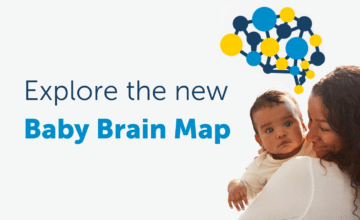Critical periods in infancy are windows of time when the brain is exceptionally responsive to specific environmental stimuli and experiences.
These stages of brain development are crucial because they represent moments when the infant’s brain is most adaptable, forming neural connections that influence future learning, sensory abilities, and emotional well-being.
During these critical periods in brain development, exposure to positive experiences—such as language, social interaction, and sensory stimulation—shapes a child’s cognitive, emotional, and physical growth. However, missing these experiences can lead to developmental challenges that may be harder to address later in life.
Why Critical Periods in Infancy Matter
Understanding critical periods is essential for parents, caregivers, and early childhood professionals. Research emphasizes the importance of early intervention during these sensitive stages of brain development to support healthier outcomes in areas like language skills, emotional regulation, and motor abilities. For instance, the critical period for language development peaks within the first few years of life, underscoring the importance of early and frequent language exposure.
Fostering a nurturing environment during critical periods in infancy ensures children can reach developmental milestones and achieve long-term success.
Lessons from Animal Studies on Brain Development
Research on animals has shown that young mammals also experience critical periods where brain development is highly sensitive. For example:
- Newborn mice need normal whisker sensation within days of birth to avoid abnormal tactile sensitivity.
- Cats require proper visual input during their first three months to prevent permanent vision impairment.
- Monkeys deprived of consistent social contact during their first six months develop severe emotional disturbances.
Human Brain Development and Critical Periods
Many of the same critical periods appear to hold for human development, although we are less certain about their exact length. Thus, babies also require normal visual input or they may suffer permanent impairment; children born with crossed or “lazy” eyes will fail to develop full acuity and depth perception if the problem is not promptly corrected.
The Role of Language in Critical Periods
Language development depends on consistent verbal interaction (or exposure to sign language for children with hearing impairments) during early life. The critical period for mastering language skills, including grammar and pronunciation, begins closing around age five and ends around puberty. This is why individuals learning a second language after puberty often retain a foreign accent.
Explore early brain development in our interactive tool, The Baby Brain Map.




